India's economic easing policy drives the development of the plastics industry
India is a well-deserved "large plastic consumer", the PlastIndia Foundation expects that India's plastic consumption will reach 22 million tons by 2020-2021. Among them, the fastest growing plastic packaging consumption in the Indian plastics industry will reach 9 million tons per year by 2020~2021.
In addition, factors such as the increasingly developed e-commerce transactions, the popularity of smart phones and related consumer goods, and the booming of the automotive industry are important factors driving plastic consumption in India.
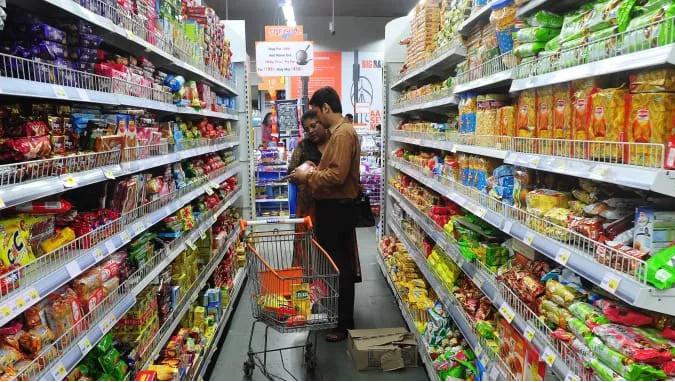
With the series of economic measures announced by India recently, it is bound to bring more development potential to the industry.
Last week, India announced a cheaper car loan policy and announced that it would relax regulations on foreign investment, and foreign companies could open large coal companies in India.
According to data released by the Indian government, India's fiscal year 2018-2019 attracted foreign direct investment of 64.37 billion US dollars, a record high.

According to a research report by market research firm Frost & Sullivan, the annual compound growth rate of Indian auto parts will reach 12.4% in the eight years from 2014 to 2021. The growth rate of engine oil, wipers and brake pads is the most significant. The magnitude will exceed ten times that of Europe and the United States.
In addition, India will also relax regulations on foreign direct investment in the retail and manufacturing sectors, which hinder companies such as Apple and other global retailers from opening stores.
Various economic relaxation measures will stimulate the growth of consumption in India's automotive and electronics industries, which will drive the development of the plastics industry.
According to data from Ernst & Young and HKTDC, it is estimated that by 2020, the demand for electronic products in India will reach 400 billion US dollars, far exceeding the supply of local production in India.
In addition, a report by LocalCircles, an online survey agency in India, showed that 83% of the 8,973 Indian consumers surveyed favored the purchase of Chinese products rather than Indian goods when faced with similar products.
Among them, 38% of the people said they mainly buy durable consumer goods made in China, such as mobile phones and other electronic devices. India has a large market to be developed: currently only 29% of houses have refrigerators, 11% have washing machines, and 6% have computers.
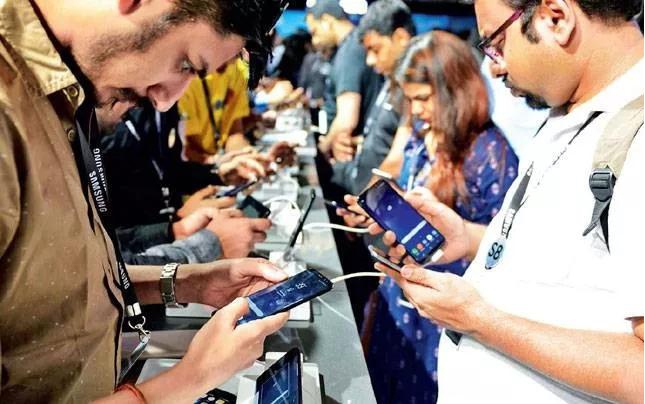
India's consumer electronics demand is huge. (Source: India Today)
However, while the consumption of plastics has surged, India has also become a veritable “plastic pollution”. More than 80% of the total plastics produced in India have been disposed of, eventually filling up landfills, blocking drainage channels, and finally flowing into rivers and oceans. , causing marine pollution. Waste plastics also penetrate into the soil and water, polluting the natural environment.
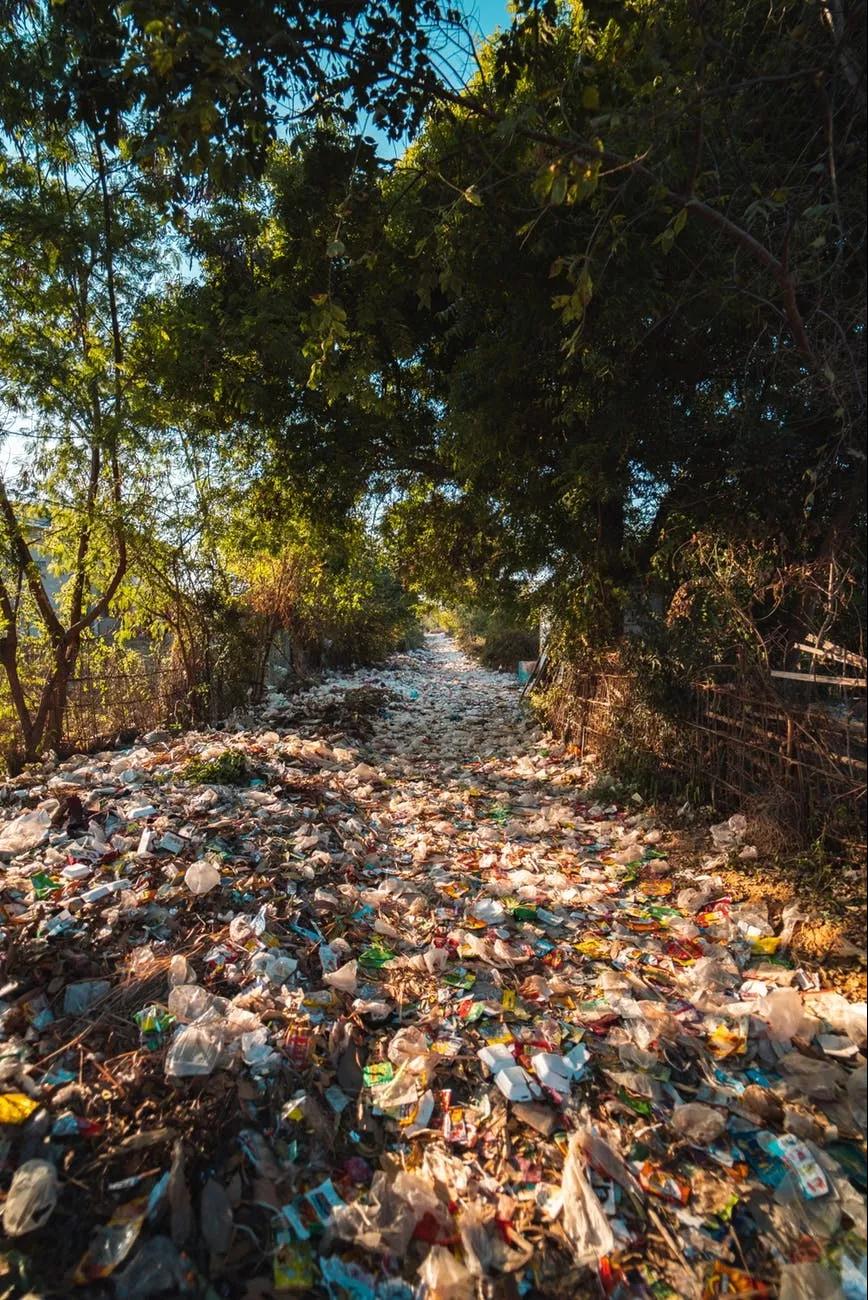
India must face up to the development of the plastics industry and the problem of waste plastics.
<PLASTIC RECYCLING SOLUTION , http://www.get-recycling.com/>
<PET RECYCLING , http://www.get-recycling.com/solutions_show.asp?id=12 >
<HDPE PP RECYCLING , http://www.get-recycling.com/solutions_show.asp?id=11>
On the one hand, the rising consumption of plastics brings business opportunities, on the other hand, it is a more serious waste plastic crisis. How can the Indian government weigh and introduce the two-in-one plan?
From the various actions and arguments of the Indian government, India has taken two main directions: prevention and recycling. On the one hand, efforts to get rid of disposable plastics; on the other hand, increase investment in the plastic recycling industry to achieve a plastic recycling economy model.
Get rid of disposable plastic action is about to start
As we reported yesterday, India will implement a ban on plastics for six disposable plastic products nationwide from October 2, including plastic bags, plastic bottles, plastic plates, plastic bottles, straws and special types of small bags. .
These bans are comprehensive and will cover the production, use and import of these items.
On the 73rd Independence Day, Indian Prime Minister Modi called on the people to liberate themselves from single-use plastics and took an important step on October 2.
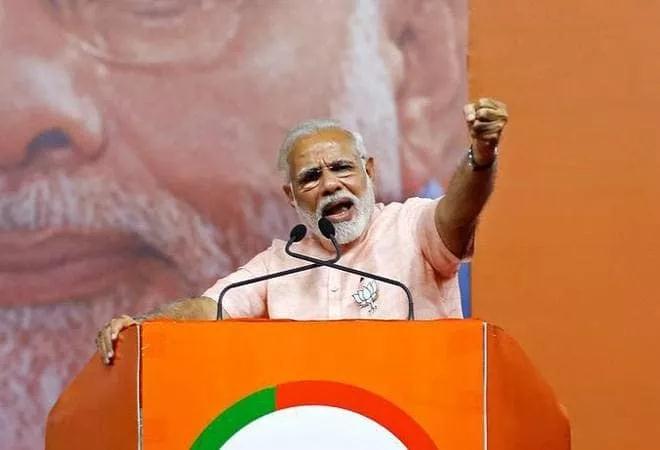
Indian Prime Minister Modi called for a national effort to get rid of disposable plastics. (Source: Business Today)
Some important companies are actively responding to the ban on disposable plastics, the first of which is the Indian Railways and Air India.
From prevention to post-processing, the plastics policy of the Indian Railways Bureau is worth learning from.
The Indian Railways announced that it will impose a one-time plastic ban on its jurisdiction (including trains) from October 2, 2019.
The Indian Railway is one of the main sources of manufacturing waste. (Source: BBC)
<HDPE PP RECYCLING , http://www.get-recycling.com/solutions_show.asp?id=11>
In the first phase, the Indian Railways asked the authorities to speed up the installation of 1,853 plastic water bottle crushers at 360 major stations.
At the same time, the Indian Railway Catering and Tourism Company (IRCTC) is required to implement the refund mechanism for plastic beverage bottles as part of the Extended Producer Responsibility.
The Indian Railways also encourages all railroad suppliers to avoid using plastic tote bags, and recommends that railroad staff reduce and reuse plastic products and use reusable bags to reduce plastic footprint.
Air India: banned in stages
Air India also announced on Thursday that its subsidiary Air India Express and Alliance Air will ban the use of disposable plastics from October 2.

Air India also began responding to the one-off plastic ban.
It is alleged that in the second phase of the next flight, all flights of the airline will be banned from using disposable plastic.
In addition to preventing waste plastics, India will pay more attention to the plastic recycling industry to achieve a plastic recycling economy model.
Official voice: Focus on recycling
C.K. Mishra, Secretary-General of the Ministry of Environment, Forestry and Climate Change of India, said earlier that India will begin to emulate Western countries and treat waste as “wealth”.
Mishra said that Western countries have been able to invent and adopt new technologies to solve the problem of plastic waste generation. Now it is time for Indian industry to adopt the same approach.
Mishra said that plastics are innocent until they penetrate the land, rivers and oceans and are not properly managed. He said that although the growth of the plastics industry is important, the industry and society must take responsible actions.
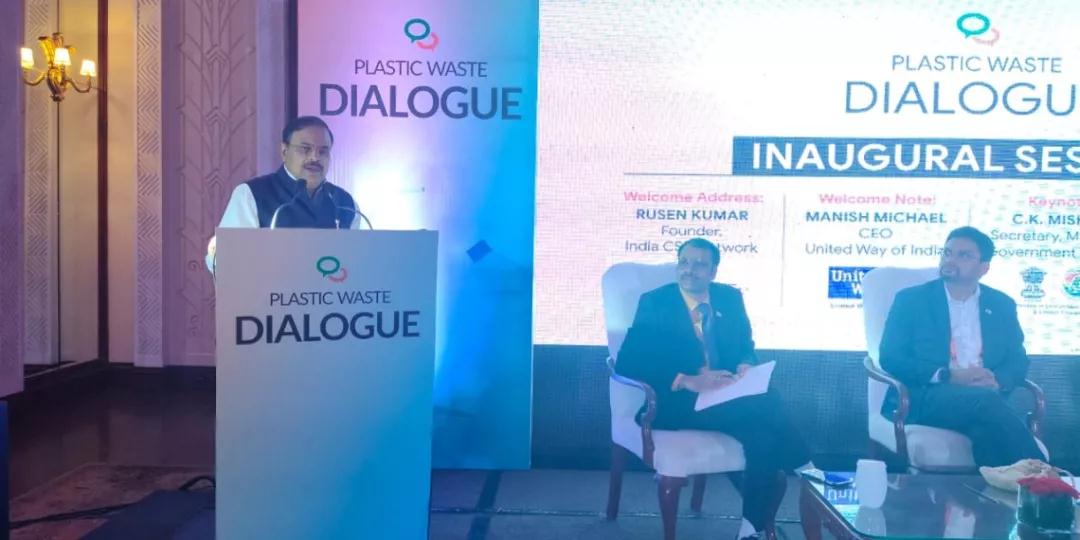
C. K. Mishra, Secretary-General of the Ministry of Environment, Forestry and Climate Change of India, said that India will regard waste as wealth. (Source: indiacsr)
He cited the cement industry, which uses plastic waste as a fuel, as an example, and believes that more industries should follow suit. He said that although only 5% of the industry's fuel is from plastic waste, it will increase to 25-30% in the future.
Mishra added that shifting from production to recycling is a key direction. Due to the production of enough plastics in the country, the recycling industry has great potential for development.
It is reported that although India's annual consumption of plastics is increasing year by year and will show further growth, India's plastic recycling volume has also reached a new high. India's waste management industry market is expected to record a value of US$13.6 billion by 2025. It grew at a compound annual growth rate of 7.2%.
Four great benefits: recycling and recycling economy investment opportunities
Due to the underdeveloped recycling and waste management mechanisms in India, the implementation of important bans may have an impact on investment opportunities in the Indian recycling sector. However, overall, for investors, the outlook is optimistic.
First, the Indian government has a willingness to promote the recycling industry. For example, in 2018 the Indian government introduced the “Plastic Waste Management Rules 2018” to reduce waste plastics and manage plastic waste.
One of the key points is the introduction of Extended Producer Responsibility (EPR). According to the EPR, the producer is responsible for collecting and processing the finished product at the end of the product life cycle. This policy lays the foundation for investment opportunities in the recycling industry in India.
At the same time, India has also enacted various laws to support foreign investors in building factories and producing procurement. There are many special economic zones (SEZ) in India, and companies in the special economic zones will likely be eligible for tax exemptions for the next five years, and companies that provide infrastructure resources are more eligible for a 10-year tax exemption.
Factories in these regions will receive specific storage infrastructure and efficient transportation.

India began to set up special economic zones in 2000, one of which is to attract foreign direct investment.
Second, India is also a large economy with a large and strong corporate culture that will contribute to the long-term development of the recycling and waste management industry. India offers tremendous opportunities for investment in these industries.
In addition, India's recycling industry does not need to rely on imports or exports, they have their own recycling ecosystem, and can carry out waste management in the country. In fact, India's plastic waste imports are not large, such as only 48,000 tons in FY 2018.
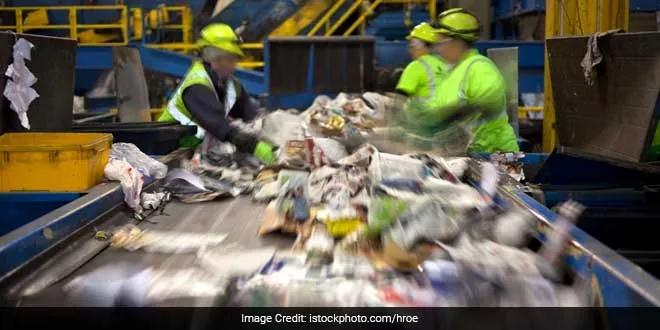
India has its own recycling ecosystem.
<PLASTIC RECYCLING SOLUTION , http://www.get-recycling.com/>
<PET RECYCLING , http://www.get-recycling.com/solutions_show.asp?id=12 >
<HDPE PP RECYCLING , http://www.get-recycling.com/solutions_show.asp?id=11>
Third, India's recycling industry has many “ready” projects that can be scaled up at any time as long as there is sufficient capital investment. Therefore, helping the recycling industry to deal with problems in the capital chain of the project will help the industry to grow, thus providing investors with more attractive business opportunities.
Fourth, and more importantly, India's PET recycling industry is working very well. Some parts of India have the highest recycling rates in the world, because with a complete value chain from collection to production of clothing and textiles, every step of the process can generate benefits for the public.
According to reports, India's PET recycling rate is currently as high as 90%, compared with 48% in Europe and 31% in the United States.
The ban will affect the livelihood of employees in the short term, but it will help the industry to formalize in the long run. Image source: Forbes (Abhisek Saha / Barcroft)
Nevertheless, the ban will have an impact on all aspects of the Indian recycling industry, particularly the livelihoods of practitioners in the landfill waste collection and classification industry. However, despite the reduction in total imports and exports, India's recycling industry still has the ability to maintain its overall development trajectory.
Ultimately, the development of the recycling industry will also bring better benefits to these waste collectors. By expanding the recycling industry in India and formalizing the waste collection industry, they can further improve their quality of life and health and safety.
<PLASTIC RECYCLING SOLUTION , http://www.get-recycling.com/>
<PET RECYCLING , http://www.get-recycling.com/solutions_show.asp?id=12 >
<HDPE PP RECYCLING , http://www.get-recycling.com/solutions_show.asp?id=11>

